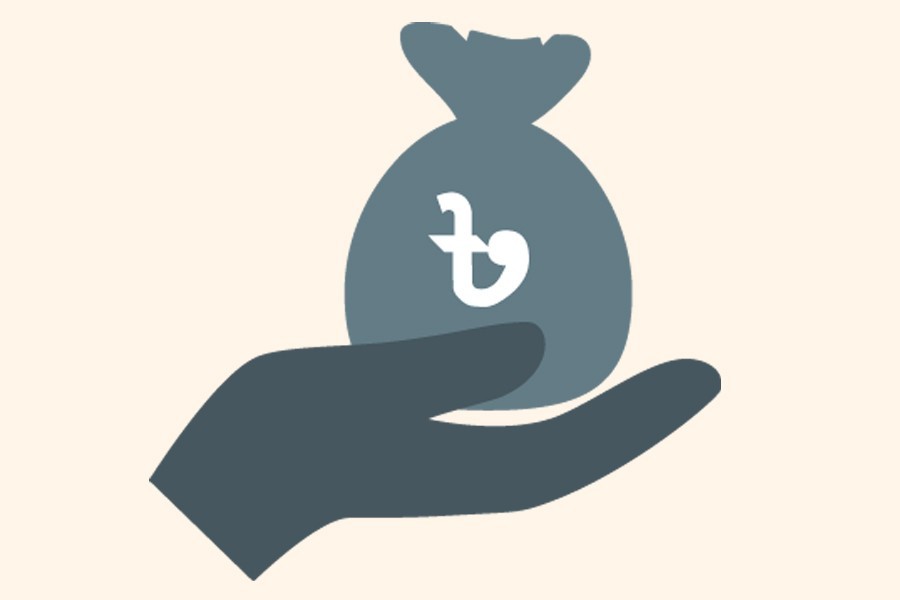The budget for next fiscal year (FY) proposed to substantially increase allocation of subsidy and incentives to TK 386.88 billion, much of which is aimed at offsetting the shock of Covid-19 pandemic.
In the current fiscal, the allocation was TK 319.83 billion.
Like previous occasions, the highest subsidy went to the public service division with TK 229.71 billion, followed by agriculture sector TK 95.01 billion.
Social security and welfare sector will get a subsidy of Tk 48.55 billion.
Public order and safety sector will get TK 8.74 billion while Defence services sector TK 4.87 billion.
On the other hand, a large chunk of the subsidy will be spent to address the challenges of the Covid-19 fallouts. This subsidy will be provided under the Covid-19 stimulus package as announced previously.
Narrating these subsidies, Finance Minister AHM Mustafa Kamal in his budget speech said that to tackle the Covid-19 fallout, the government had created a fund amounting to Tk 50 billion for the export-oriented industries so that they can continue to pay salaries and allowances to their workers and employees.
"To provide much needed support to the affected enterprises in the industrial sector, we have introduced a working capital loan facility of Tk 300 billion at a subsidised interest rate for large industries," he said.
To facilitate the import of raw materials under the back-to-back letter of credit, he said, the government has increased the size of Export Development Fund (EDF) from US$ 3.5 billion to $ 5.0 billion.
"We have introduced a special honorarium equal to the basic pay of two months for the doctors, nurses and other healthcare workers who are providing critical healthcare services to Covid-19 patients," the minister added.
About the subsidy in the Agriculture sector, he said one of our key priorities in the post-Covid economic recovery plan is to keep the momentum of agricultural production.
Subsidy in the agriculture sector has been increased to Tk 95 billion while Tk 2.0 billion has been allocated as incentives for farm mechanisation.
In addition, the government has raised the target for government procurement and distribution of rice and paddy by 0.2 million metric tonnes in FY 2020-21 to ensure that farmers get fair price for their produce while, at the same time, the retail market price of rice remains stable.
"We are also going to form an agriculture refinance scheme of Tk 50 billion to provide required agricultural credit to farmers," the minister said.
Another refinancing scheme of Tk 30 billion has been announced for small income farmers and traders in the agriculture sector.
Under another programme, Tk 20 billion will be distributed through three specialised banks, namely Palli Sanchay Bank, Probashi Kallyan Bank and Karmasangsthan Bank, and one specialised institution, namely Palli Karma Sahayak Foundation (PKSF), with each receiving Tk 5.0 billion.
The minister told the parliament that the government suspended payment of interest for the months of April and May against loans distributed by all the commercial banks.
Borrowers of such loans will not need to pay interest proportionately, and of the total interest of Tk 165.49 billion, the government will provide Tk 20 billion as interest subsidy.
The minister proposed exempting VAT on test kits of Covid-19 at import, manufacturing and trading stages.
Alongside, exemption had also been proposed at manufacturing and trading stages for locally manufactured personal protective equipment (PPE) and surgical mask (including face mask) to protect health workers.
"Besides, I propose to exempt VAT on Covid-19 medicines at import, manufacturing and trading stages. I also propose continuing exemption on meditation service for one more year to keep mental health sound during the pandemic," Mr Kamal said in his budget speech.
The minister said special attention had been given to ensure proper revenue collection with the aim of restructuring the economy affected by the outbreak of Covid-19.
Considering the industrial sector's vital role, the government has taken measures to boost industrial investment, ensure maximum utilization of production capacity of existing industries by rational protection, and make export-oriented industries more competitive through its diversified expansion.
He also proposed some duty restructuring measures.
In addition to exemption of all import duties and taxes on coronavirus testing kits, masks and PPE and on raw materials required to locally produce hand sanitisers, masks and PPE, the minister proposed reducing import duty on essential raw materials for locally produced autoclave machines used for sterilising medical instruments for the Covid-19 patients.
Emphasizing on the social safety net measures amid the coronavirus pandemic, the minister said all poor senior citizens in 100 upazilas most prone to poverty due to the coronavirus outbreak will be brought under the old-age allowance as per the existing policy where 0.5 million new beneficiaries will be included and an additional allocation of Tk 3.0 billion will be provided.
All widows and women deserted by their husbands in 100 upazilas most prone to poverty due to the coronavirus outbreak will be brought under the allowance coverage where 0.35 million beneficiaries will be added and an additional allocation of Tk 2.10 billion will be provided.


